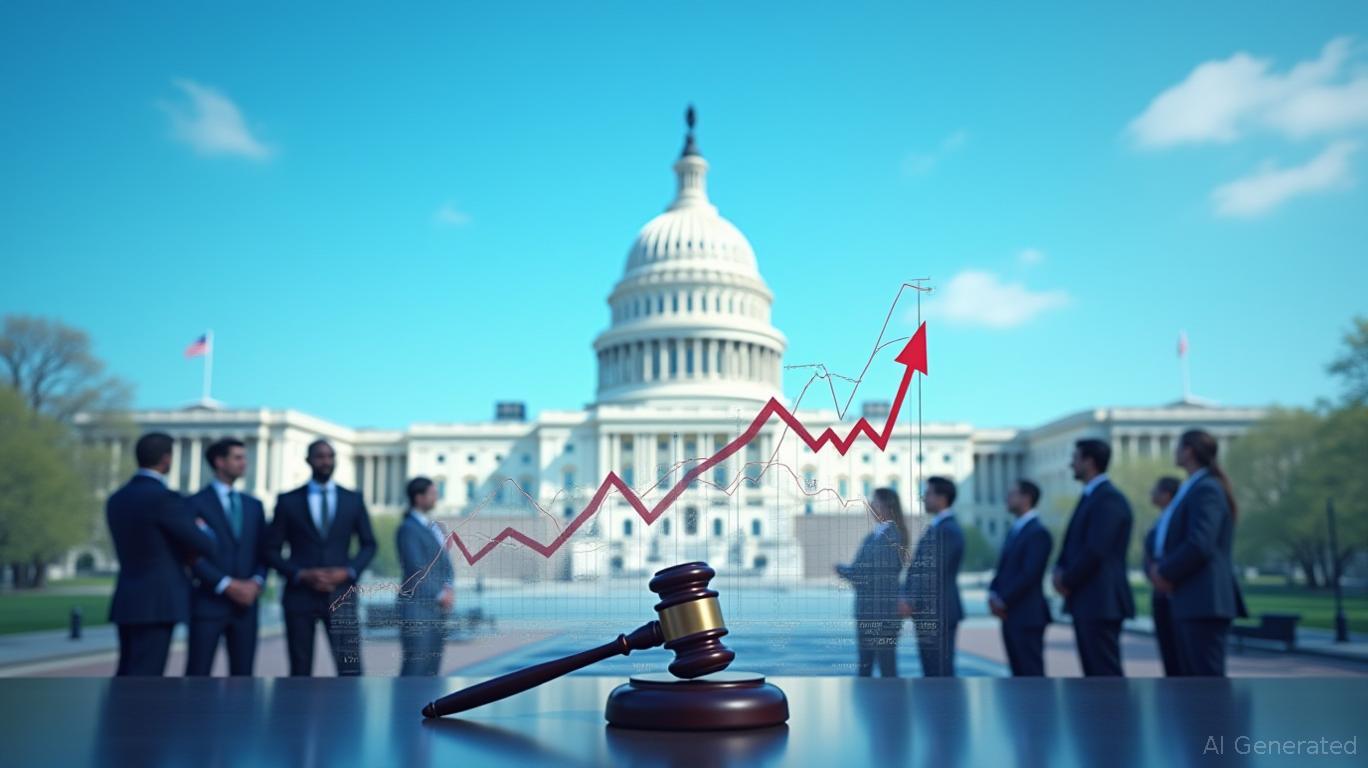Markets Open Higher as Washington Eyes Passage of Massive Domestic Tax Cut
U.S. stocks opened in the green Monday morning, with all major indexes posting early gains as traders digested momentum in Washington surrounding the “One Big Beautiful Bill Act” and watched crude oil

U.S. stocks opened in the green Monday morning, with all major indexes posting early gains as traders digested momentum in Washington surrounding the “One Big Beautiful Bill Act” and watched crude oil prices slide. The Dow Jones Industrial Average rose 193.62 points, or 0.44%, to 44,012.9, while the S&P 500 and Nasdaq Composite gained 0.26% and 0.29%, respectively, in early trading.
Investor attention has locked onto the Senate’s progress on the sweeping Republican-led bill, which passed a key procedural hurdle overnight. The legislation, which touches everything from defense and health care to energy and taxes, is expected to clear the upper chamber by midweek before returning to the House for reconciliation. President Trump’s administration has targeted July 4 for a signing ceremony.
Markets appeared to welcome clarity on the policy front, particularly after the bill’s more controversial components—such as the “revenge tax” on digital service levies—were dropped following a G7 accord. Treasury Secretary Scott Bessent said the removal could save U.S. companies $100 billion over the next decade.
Oil prices, meanwhile, continued their descent, with crude futures for August delivery slipping 0.44% to $65.23 per barrel. Prices briefly fell as low as $64.50 before recovering. The decline follows investor recalibration of energy demand expectations in light of new tax provisions targeting renewable energy supply chains and the sunset of electric vehicle credits by September.
Energy equities and green tech names were volatile after Tesla CEO Elon Musk criticized the legislation as “utterly insane and destructive,” underscoring sectoral concerns over the rollback of clean energy incentives.
Still, optimism around infrastructure and defense spending lifted industrials, particularly firms poised to benefit from the bill’s emphasis on missile systems, shipbuilding, and domestic sourcing. Analysts also highlighted potential upside for U.S.-based manufacturers like GE Vernova and First Solar.
In fixed income, the Treasury market faces intensifying pressures, even as demand remains stable at current auctions. Dr. Torsten Sløk, Chief Economist at Apollo, noted in a June 28 memo that “the U.S. government currently pays a record-high $3.3 billion in interest payments every day,” adding that roughly 20 cents of every tax dollar now goes toward debt service. With $9 trillion in federal debt maturing in the next year and debt-to-GDP projected to surge past 150% under current policies, investors may soon demand higher long-term rates.
With markets responding positively to perceived political momentum and reduced tax uncertainty, attention now turns to whether the Senate can push the bill to passage without further disruption—and what implementation will look like across affected sectors.
Disclaimer: The views in this article are from the original Creator and do not represent the views or position of Hawk Insight. The content of the article is for reference, communication and learning only, and does not constitute investment advice. If it involves copyright issues, please contact us for deletion.